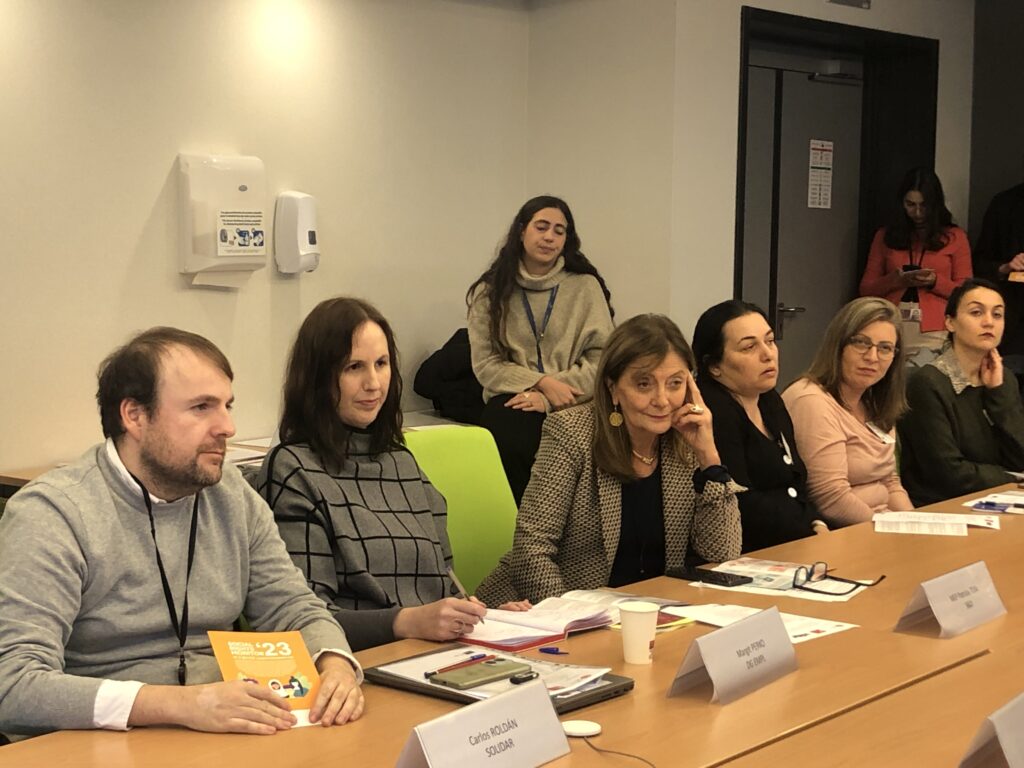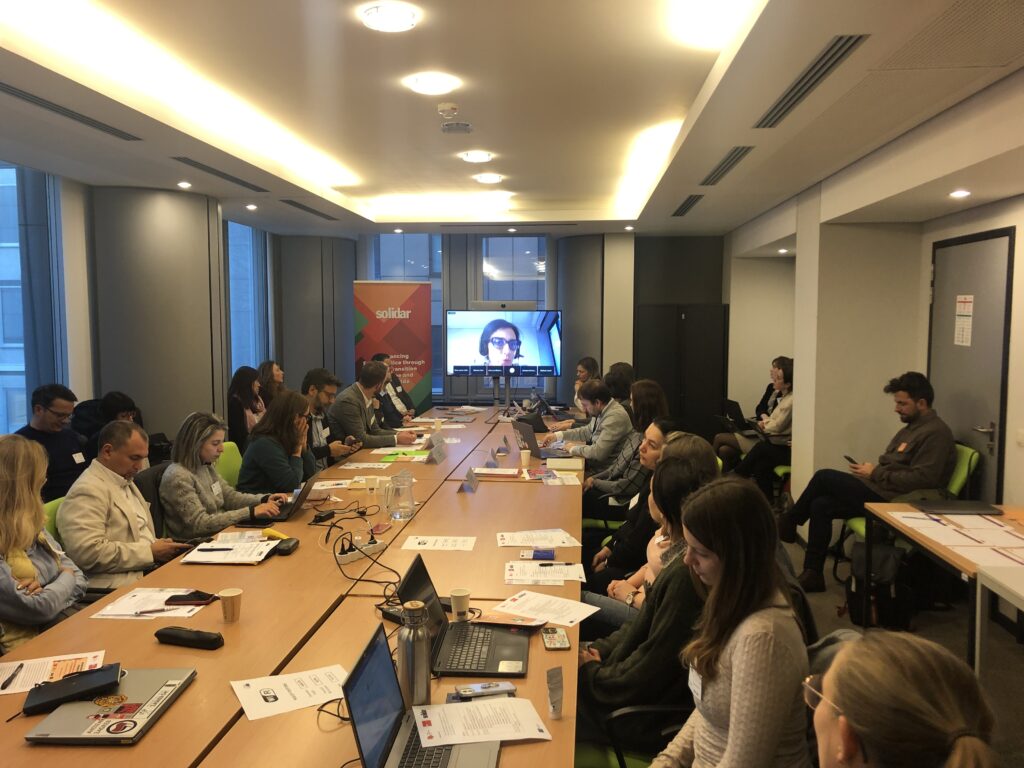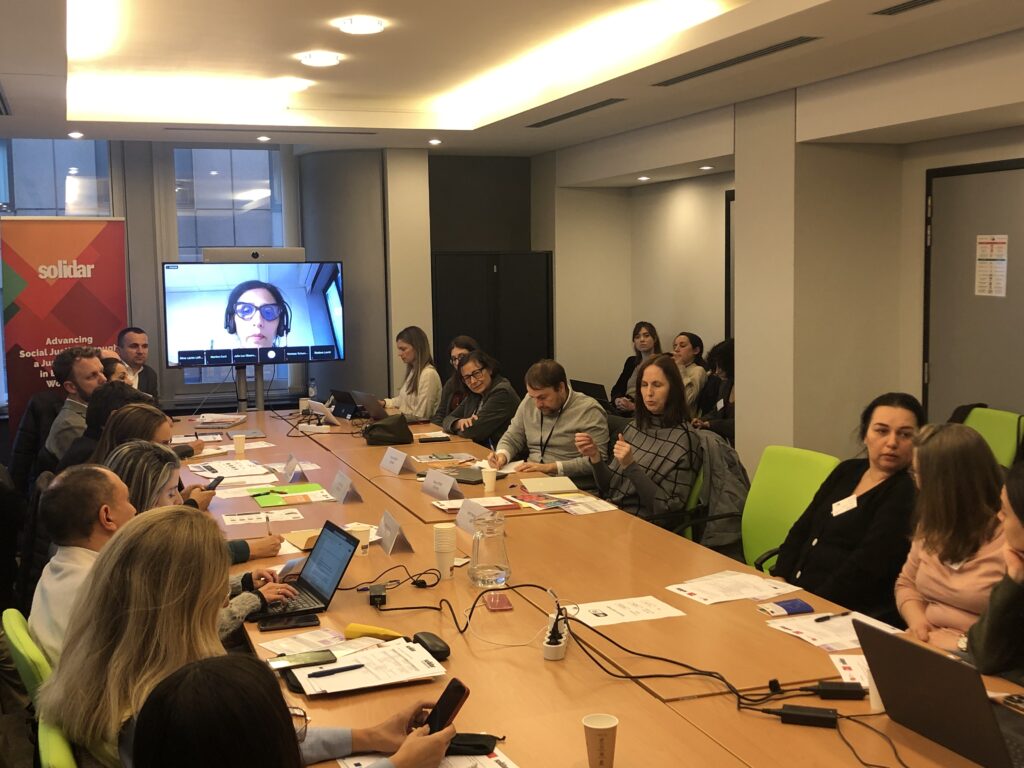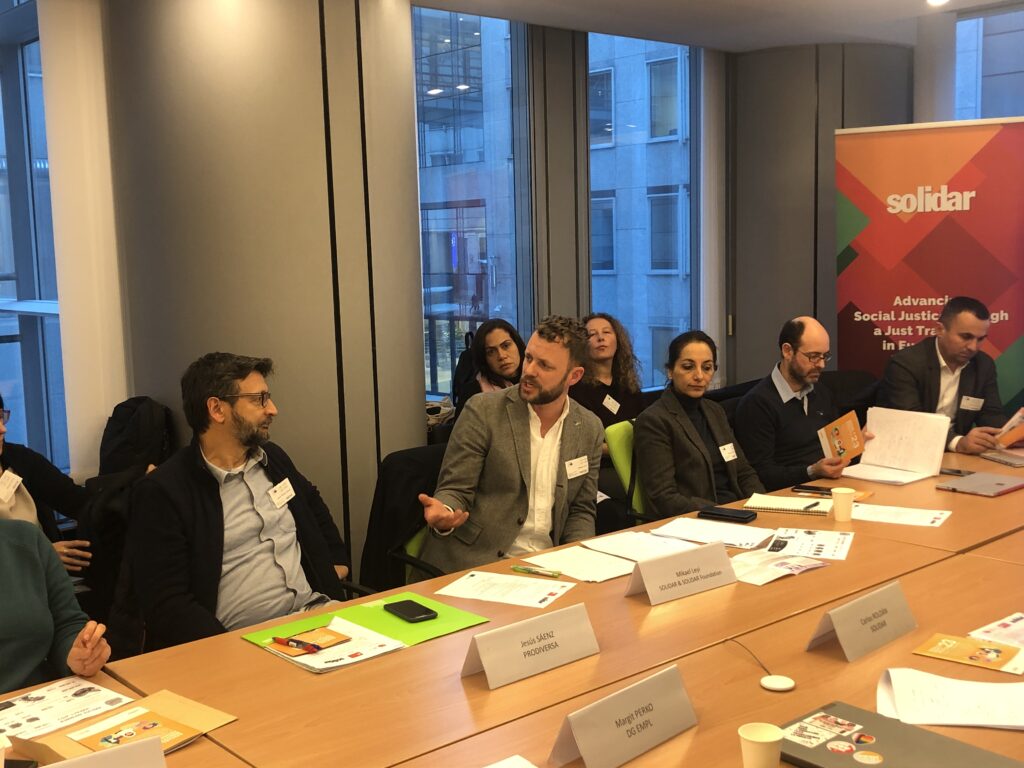SOCIAL EUROPE CONFERENCE 2023 – THE LAUNCH OF THE NEW SRM AND THE POTENTIAL OF SSE FOR A JUST TRANSITION
On 28 November, SOLIDAR hosted its Social Europe Conference, an annual event presenting the results of the Social Rights Monitor (SRM), SOLIDAR’s flagship publication on the state of social rights and the civic space in Europe.
The event, which brought together over 40 participants representing civil society organisations, social and solidarity enterprises, think tanks and national and EU agencies, was co-hosted by S&D MEP Patrizia Toia and held in the European Parliament in Brussels.
In addition to highlighting the Social Rights Monitor’s key results, the conference discussed the pivotal role the Social and Solidarity Economy (SSE) can play to ensure Europe’s green and digital transition is socially just, and the importance of championing a more inclusive economy in the run up to next year’s European elections.
“The Social Rights Monitor assesses the extent of the implementation of the European Pillar of Social Rights (EPSR) and highlights shortcomings and where progress is needed to uphold social rights in Europe”, said Carlos Roldán Mejías, SOLIDAR’s Social Policy Coordinator. “The tool is a valuable complement to other statistics and data”. Following the EPSR’s structure, the Monitor assesses progress at national level under five categories: Equal opportunities and access to the labour market (1); Fair working conditions (2) and Social protection and inclusion (3). Additionally, it examines the situation concerning (4) Just Transition, encompassing aspects like energy poverty and mobility and (5) Civic space, which includes social dialogue and fundamental freedoms.
Research is conducted by SOLIDAR members and their partners and experts, organised in National Strategy Groups (NSGs), and combines interviews and desk research.
This year’s Monitor was presented in a concise and easy to read booklet highlighting key facts and figures that will stick with readers. The full report is available online where the findings are presented on a user-friendly platform with interactive maps, which constitutes the main novelty of the SRM new methodology. Common trends observed in the covered countries are included in the European Trends report along with some policy recommendations. This year’s key Trends include unequal support offered to migrants from the Global South compared to European migrants, stalled progress in gender equality, and a steep fall in real wages and living conditions resulting from last year’s inflation.
“It’s been seven years since the Gothenburg summit, where the European Pillar of Social Rights was outlined”, said Patrizia Toia. “We faced many crises since, including one that deeply impacted our welfare systems. Wages have fallen across Europe, and rising unemployment has had disastrous impacts on the most vulnerable. The Social Rights Monitor is an excellent tool to measure the impact of our work. It shows we made progress, but so much more must be done in the years to come”.
In subsequent sessions, stakeholders at the conference shared knowledge and experience on the Social and Solidarity Economy, demonstrating its critical role in building a fair and more sustainable Europe. The SSE is a people-planet centred economy, and many successful projects and enterprises show that alternative economic models are possible and viable.
Jesus Saenz, from Spanish SOLIDAR’s member organization PRODIVERSA presented Accompanya, a tremendously successful social inclusion enterprise based in Malaga, Spain, specializing in catering services. Later, a panel discussion on challenges and opportunities of SSE for a Just Transition, offered an opportunity to hear from and exchange with panelists Margit Perko, from the European Commission’s DG Employment, Neva Nahtigal, Director of RREUSE, and Amal Chevreau, Senior Policy Analyst at the Centre for Entrepreneurship, small and medium-sized enterprises (SMEs), Regions and Cities, at the Organisation for Economic Co-operation and Development (OECD). Presentations showed the SSE was fast-growing, with over 3 million social economy entities in Europe.
Concluding the meeting, Mikael Leyi, SOLIDAR Secretary General spoke of the social and solidarity economy’s potential to impact positively the economy and change the way we live. “There is a path to grow economically and to prosper, without hurting the planet”, he said. “These concepts and models are new, but they are not political. There are dramatic changes on the horizon for Europe and the Global South. We need to use the opportunities these models offer and overcome our differences to make an urgent transition happen.”
This conference was organized in the framework of SOLIDAR’s Organisational Strategy 2021-2025 and the program ”Realising Social Europe for All and With All”, supported by the European Union, through the EaSI strand of the ESF+ programme.






